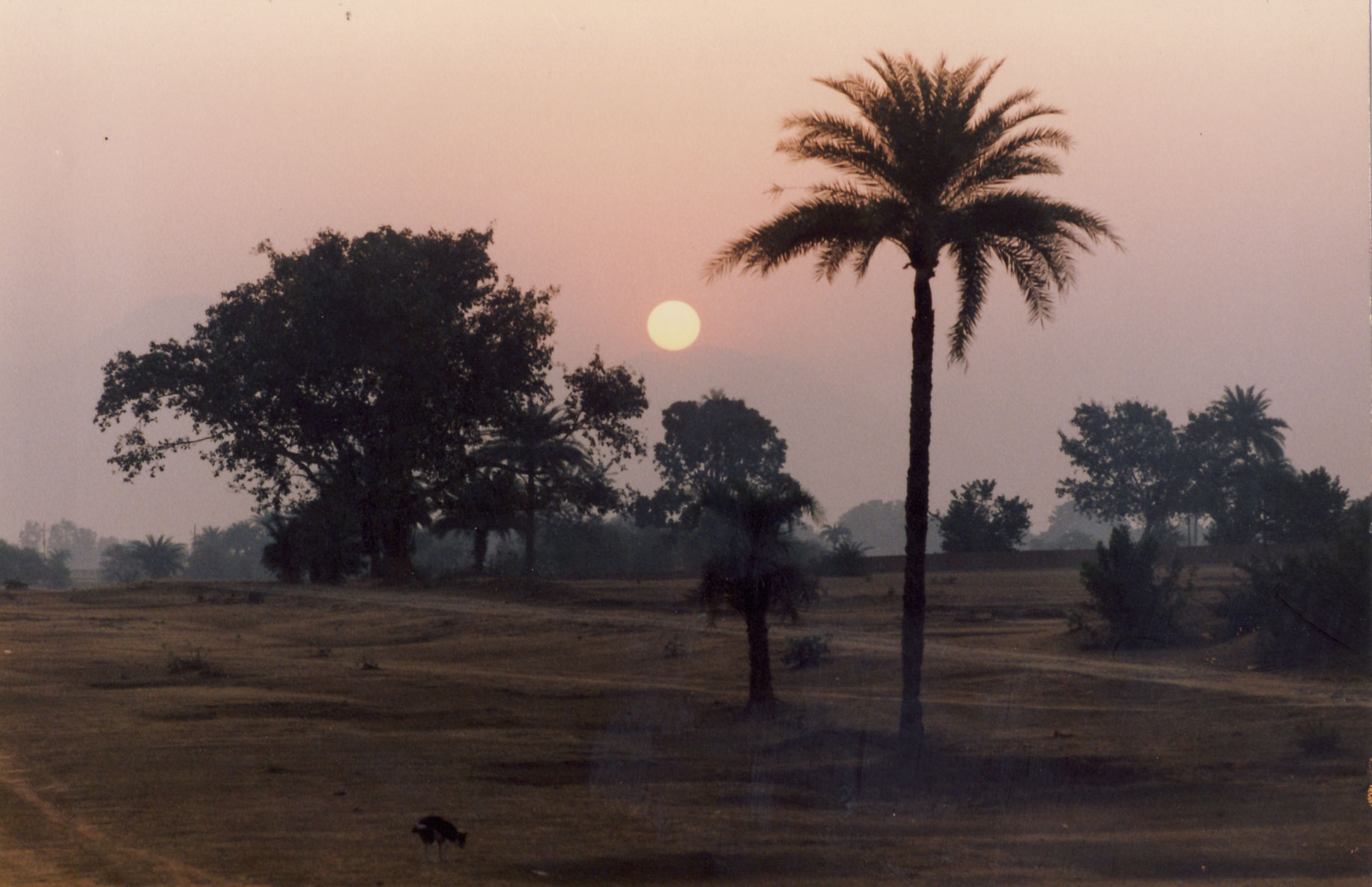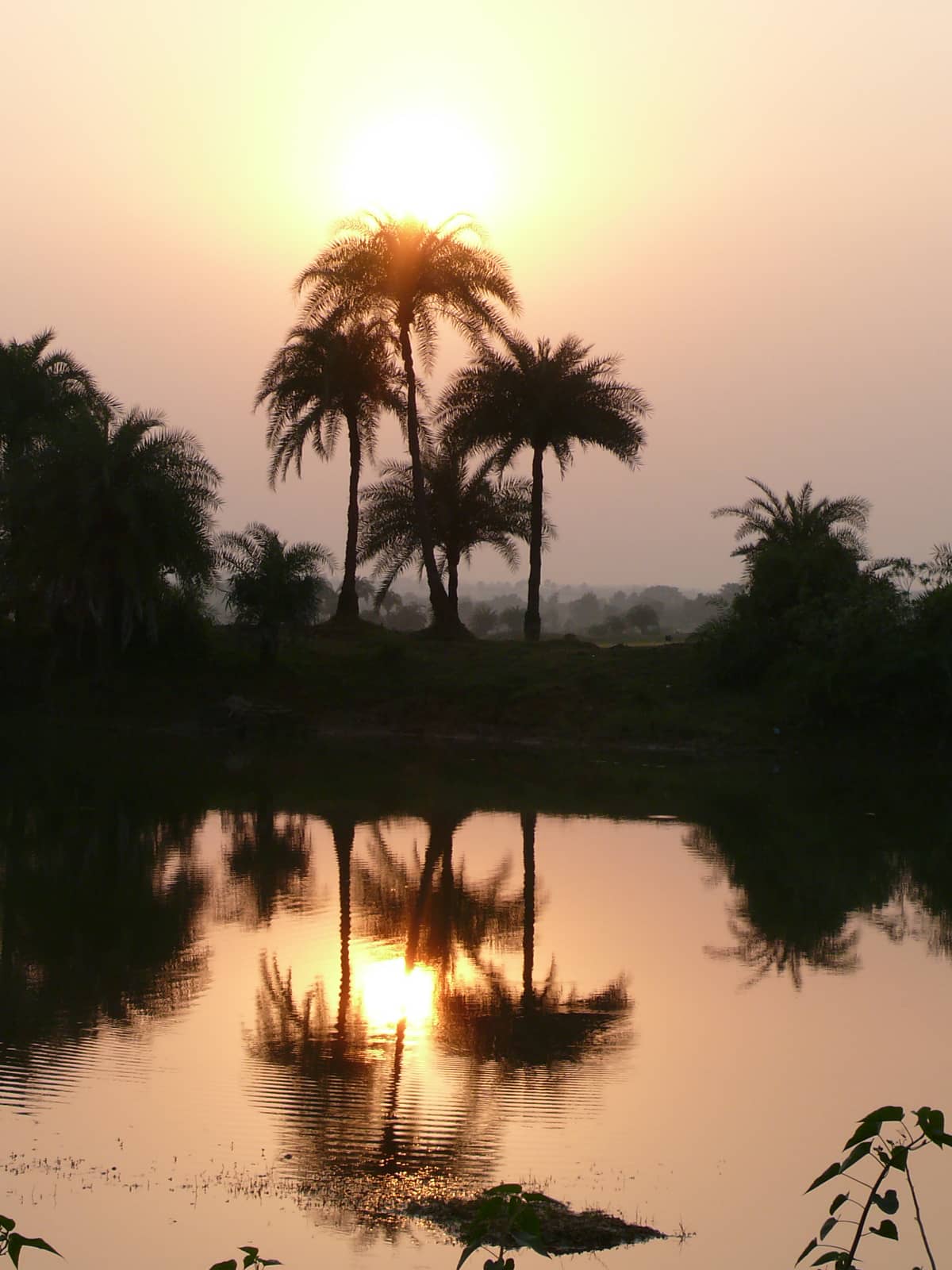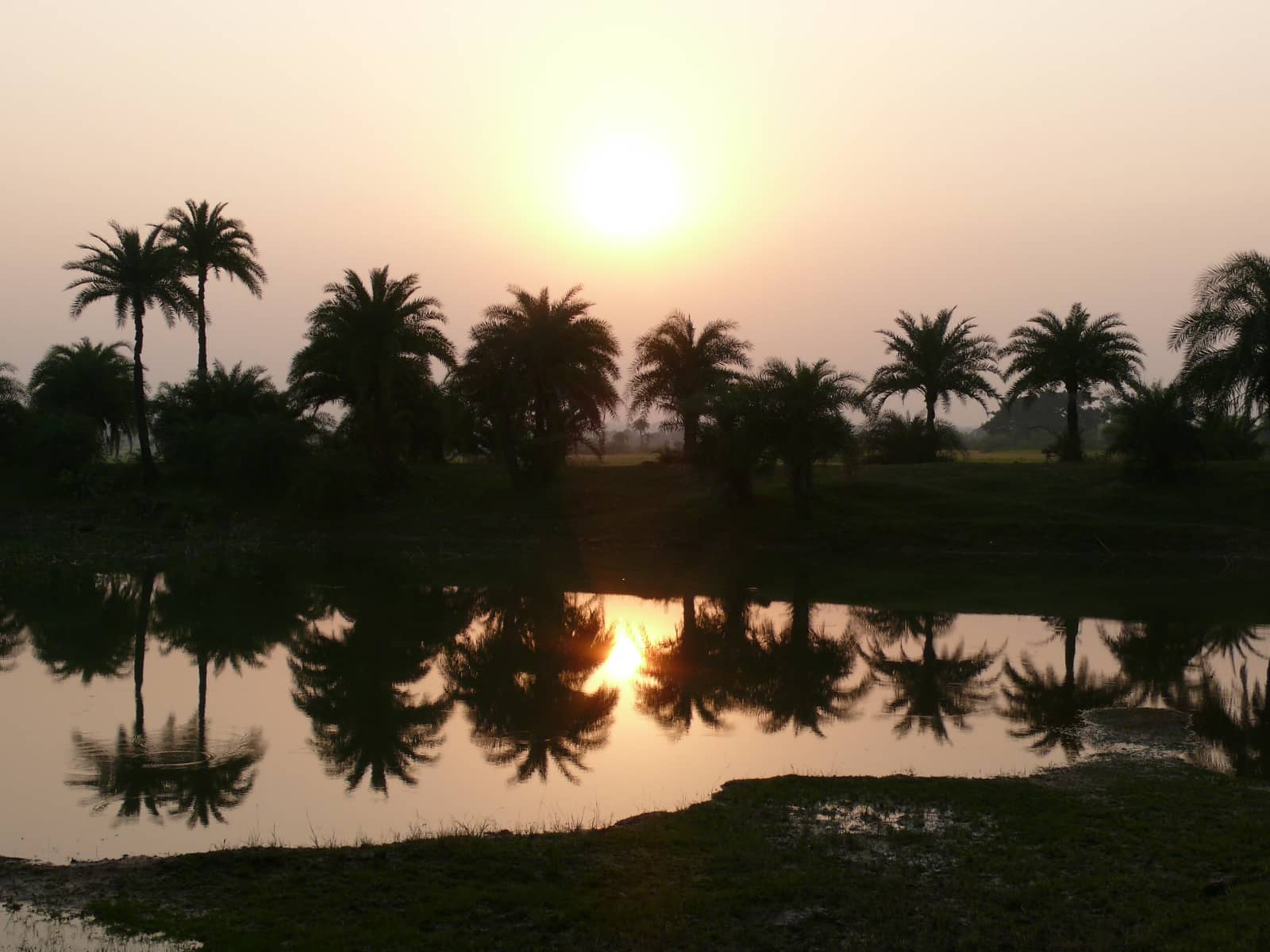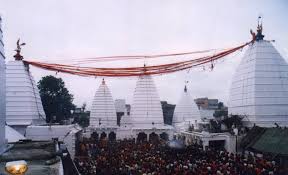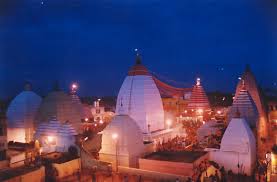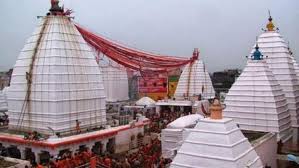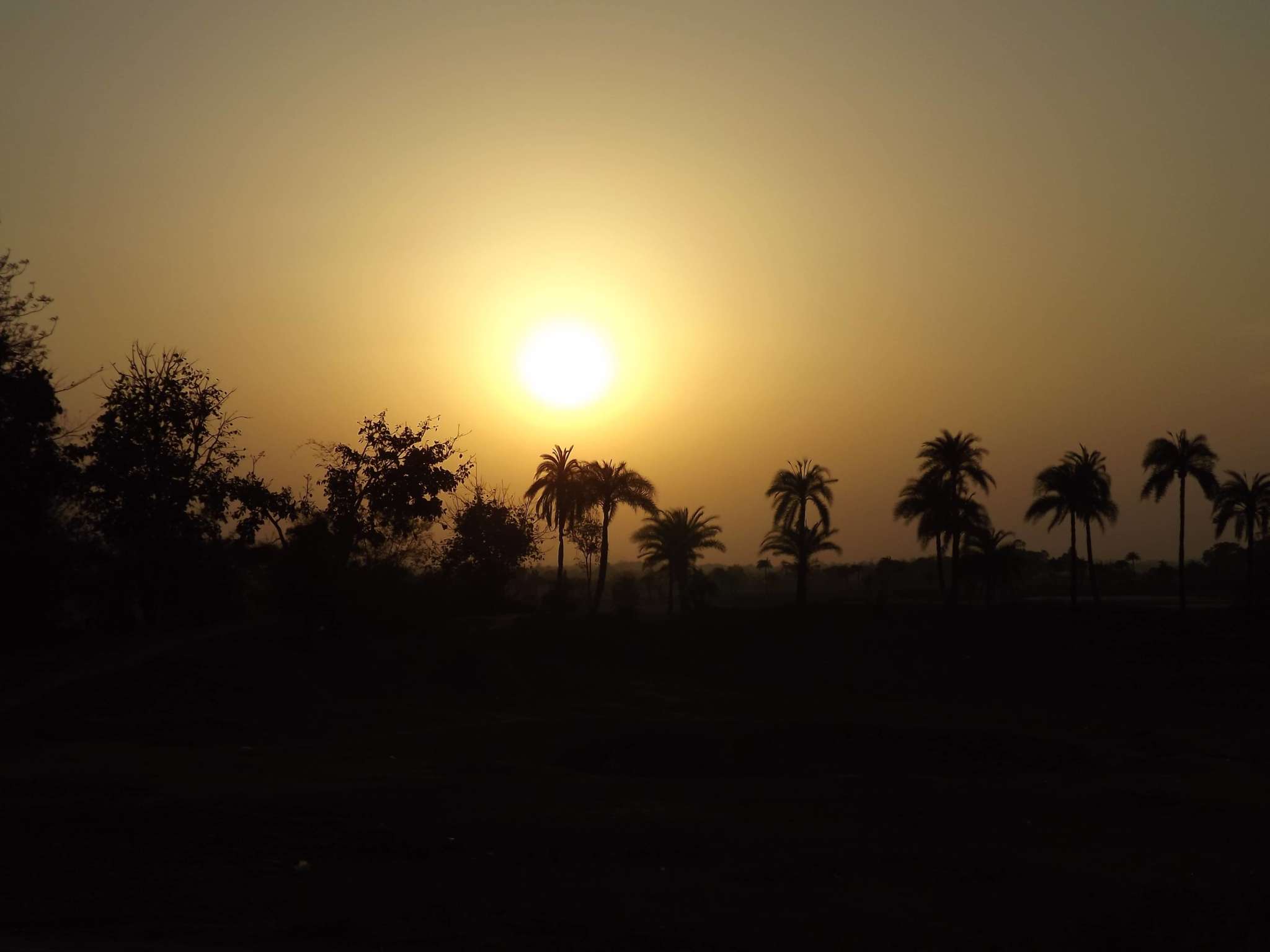Travel Guide
How to Reach Rikhiapeeth
Travel Guide – Plan your travel to Rikhiapeeth
Planning a journey to Rikhiapeeth has become easier as Deoghar is now connected to
many major cities of India via direct domestic flights and express trains.
By Air:
– Closest international airport is Kolkata which 4-5 hours by train and 1 hour by flight from Rikhiapeeth.
– Closest domestic airport is Deoghar (DGH), which is 30 minutes from Rikhiapeeth by taxi.
Flight Schedule to Deoghar Airport:
Airline: IndiGo Airlines
| Flight Route | Flight into DGH | Departure from DGH | Schedule |
|---|---|---|---|
| Kolkata (CCU) <> Deoghar (DGH) | 10:00 - 10:55 am | 2:00 pm | Daily |
| New Delhi (DEL) <> Deoghar (DGH) | 11:30 - 1:15 pm | 1:45 pm | Daily |
| Bengaluru (BLR) <> Deoghar (DGH) | 10:05 - 12:25 pm | 12:55 am | Tues, thurs, Sat |
| Ranchi (IXR) <> Deoghar (DGH) | 12:35 - 1:35 pm | 11:15 am | Tues, thurs, Sat |
| Patna (PAT) <> Deoghar (DGH) | 12:35 - 1:35 pm | 11:15 am | Sun, Mon, wed, Fri |
By Train:
The nearest railway station is Jasidih Junction (JSME), which is 30 minutes from
Rikhiapeeth. Taxi and auto risckshaw which are readily available on arrival. Jasidih
Junction is on the Howrah (Kolkata) – Patna – Delhi line.
Kolkata to Jasidih Junction (JSME)
| Train No. | From | Train Name | Time | Schedule |
|---|---|---|---|---|
| 12303 | Howrah | New Delhi Poorva Express | 8:00 am to 12:11 pm | Mon, Tues, Fri, Sat |
| 12305 | Howrah | New Delhi Rajdhani Express | 13:05 - 17:40 | Sun Only |
| 12023 | Howrah | Patna Jan Shatabdi Express | 14:05 - 18:19 | Daily (except Sun) |
| 22347 | Howrah | Vande Bharat Exp | 15:50 - 19:11 | Daily (except Wed) |
New Delhi to Jasidih Junction (JSME)
| Train No. | From | Train Name | Time | Schedule |
|---|---|---|---|---|
| 12304 | New Delhi | Howrah Poorva Express | 17:40 - 11:42 | Wed, Thu, Sat, Sun |
| 12306 | New Delhi | Howrah Rajdhani Express | 16:50 - 07:50 | Fri |
| 12274 | New Delhi | Hwh Duronto Exp | 12:40 - 05.02 | Tues, Sat |
Visit the Indian Railways website for up-to-date train schedules.
Indian railways official website
The above train times are subject to change and should be confirmed with India Rail or your travel agent prior to travel. There are other trains available, however the above is a selection of some reliable express options.
How to Reach Rikhiapeeth
By Air:
Closest international airport is Kolkata (approx 5 hours by train from Rikhiapeeth). There are daily international flights into New Delhi and Kolkata.
Closest domestic airport is Patna (approx 4 hours by train from Rikhiapeeth)
By Train:
By Rail to Jasidih
The nearest railway station is Jasidih (10 kms from Deoghar) which is on the Howrah (Kolkata) – Patna – Delhi line.
The following train times are subject to change and travellers should confirm all times with India Rail or your local travel agent prior to travel.
From Delhi/Patna <> Kolkata. The following trains stop at Jasidih Junction.
Kolkata to Jasidih Junction
| Train No. | Train Name | Arrival |
|---|---|---|
| 12303 | Howrah New Delhi Poorva Express | 12.08 |
| 12305 | Howrah New Delhi Rajdhani Express | 17.4 |
| 12023 | Howrah Patna Jan Shatabdi Express | 18.22 |
New Delhi to Jasidih Junction
| Train No. | Train Name | Arrival |
|---|---|---|
| 12304 | New Delhi Howrah Poorva Express | 11.44 |
| 12306 | New Delhi Howrah Rajdhani Express | 8.1 |
| 12274 | New Delhi Howrah Junction Duronto Exp | 5.06 |
Patna to Jasidih Junction
| Train No. | Train Name | Arrival |
|---|---|---|
| 12024 | Patna Howrah Jan Shatabdi Express | 8.56 |
Visit the Indian Railways website for up to date train schedules: Indian railways official website
Jharkhand Home of the Rishis

Jharkhand, a relatively newly formed state in north-east India, is rich in nature’s bounty. It contains the Santhal Parganas which have been the traditional lands and forests inhabited by the Santhalis since ancient times.
Santhalis are one of the major and most ancient tribes of India. They thrived in the abundant forests of ancient Jharkhand and have preserved their unique culture and way of life over the centuries. The Santhalis continue to follow their traditional religion and social laws which is devoid of any caste system. They are skilled, honest, hardworking, and independent and continue to live in harmony with nature as they have done for thousands of years.
Deoghar The abode of Shiva and Shakti
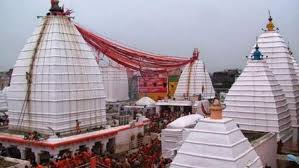 In close vicinity to Rikhiapeeth is the temple town of Deoghar, which literally means ‘home of the Gods’. The main temple enshrines Baba Baidyanath, the jyotirlingam, oval shaped stone, which is worshipped as a symbol of the illumined consciousness of Lord Shiva. It is naturally formed out of a single rock and its magnificence and power draws hundreds of thousands of devotees. Narad Muni in his description of Baidyanath Dham to Hanuman describes it as the only place where Lord Shiva grants boons to each and every person whether deserving or undeserving, sinner or saint.
In close vicinity to Rikhiapeeth is the temple town of Deoghar, which literally means ‘home of the Gods’. The main temple enshrines Baba Baidyanath, the jyotirlingam, oval shaped stone, which is worshipped as a symbol of the illumined consciousness of Lord Shiva. It is naturally formed out of a single rock and its magnificence and power draws hundreds of thousands of devotees. Narad Muni in his description of Baidyanath Dham to Hanuman describes it as the only place where Lord Shiva grants boons to each and every person whether deserving or undeserving, sinner or saint.
A feature of Deoghar is the annual kanwariya mela, festival, held in the month of Sravan (July/August), in worship of Baba Baidyanath. This is an auspicious time for bathing the jyotirlingam with Ganga water and millions of devotees, rich and poor alike, walk barefoot 104 kilometers from Sultanganj carrying Ganga water in their kanwars or earthen pots. At that time Deoghar resounds with the auspicious mantra Om Namah Shivaya, and the presence of Shiva becomes intense.
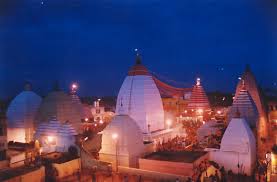
Deoghar is also a very important shaktipeeth, spiritual place where the cosmic mother is worshipped. It is said that when Lord Shiva was carrying the dead body of his consort Sati, it was cut into sixty-four pieces, and different parts of Sati’s body fell in the sixty-four peethas, important places for worship of Shakti. Her heart fell at Baidyanath Dham and thus it is known as the Hridaya Peeth or place of the heart. Swami Satyananda said, “Deoghar is the cremation ground of Devi, the place where her heart fell millions of years ago. It is also the birthplace of a new Devi. The message for the awakening of women will go out from here.”
Deoghar is an important seat of both Shiva and Shakti for they are both eternally present here and their influence is all pervading.
“Baba Baidyanath is an awakened shrine where the devotee’s pleas are heard immediately and never go unanswered.” Swami Satyananda
Office Hours
8:00 AM to 11:00 AM
2:00 PM to 5:00PM
Useful Link
Address
Rikhiapeeth P.O. Rikhia Dist. Deoghar, Jharkhand, 814113 India.
Tel: +91 9102699831

